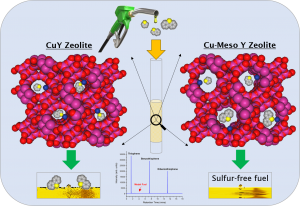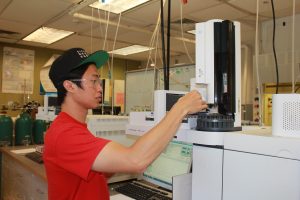The urgent and significant need to reduce sulfur content in fossil fuels, to almost zero levels, is driven both by mandatory environmental fuel regulations and the stringent tolerance required for their use in fuel cell applications. During the last decade, a lot of scientific effort has been devoted to developing new technologies, which either stand-alone or in combination with the traditional Hydrodesulfurization process HDS, will effectively remove sulfur compounds in transportation fuels. Among the above processes the removal of sulfur compounds using selective adsorption at ambient or mild conditions represents one of the most promising and attractive methods for local stand-alone desulfurization, because it represents a compact, easy-to-handle, economical, and potentially regenerable process. Desulfurization by adsorption is based on the ability of a solid sorbent to selectively adsorb organo-sulfur compounds. Materials containing one or a combination of transition metals are usually used for the selective adsorption of sulfur compounds. The development of zeolite based adsorbents with high sorption capacity, selectivity and regenerability is the focus of our research.
Lately we have developed in our lab mesoporous Y zeolites which show a tremendous increase in the adsorption of refractory sulfur compounds, such as dibenzothiophenes. Our research is funded by the ACS / Petroleum Research Foundations (PRF+ 55900-DN15) 

